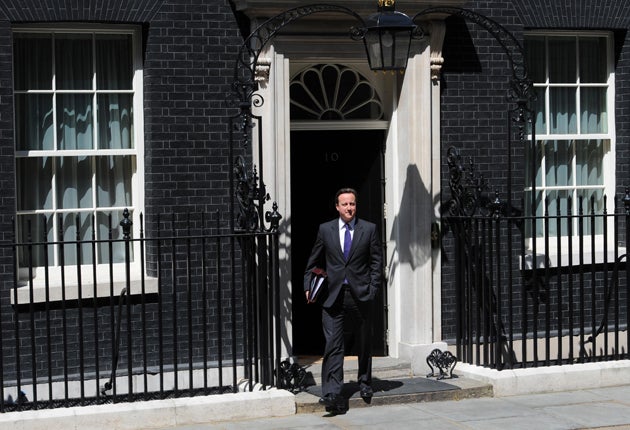Tory right makes push for power on select committees
Cameron faces campaign by his own backbenchers to secure most influential Commons chairmanships

David Cameron and the coalition government are facing an organised campaign by the Tory right to secure the most influential chairmanships of House of Commons select committees, it emerged last night.
Party insiders revealed there was a slate of candidates in operation among members of three right-wing groups of Tory MPs, forming a powerful block vote of support for candidates on the right.
The move is significant because, if effective, it could see a string of select committees run by right-wingers with the potential to cause difficulty for the Conservative-Liberal Democrat coalition.
Since the creation of select committees under Margaret Thatcher's government, membership has been chosen by party whips, but next week MPs from all parties will vote in a secret ballot for committee chairmen, with votes on other members coming later in the session.
As the lead party in government, the Conservatives are earmarked for the majority of chairmanships – including the powerful Treasury and Defence committees.
The Conservative right wing has already flexed its muscles over the election of the chairman of the backbench 1922 Committee. Last month the Prime Minister was forced to back down over his proposal for frontbenchers to vote on the leadership of the committee in the face of a threatened revolt. Graham Brady, who resigned from Mr Cameron's front bench three years ago over policy on grammar schools, was elected chairman of the committee.
George Osborne, the Chancellor of the Exchequer, continues to grapple with a rebellion by right-wing MPs over the coalition's proposed increase to capital gains tax.
Three right-wing factions – the No Turning Back, 92 and Cornerstone groups – were instrumental in securing a clean sweep of all leadership posts on the 1922 Committee and are understood to be co-ordinating forces for the select committee elections.
Election for chairmanship of the Treasury select committee, one of the most important in the Commons, is being fought between Michael Fallon, who has strong backing from the Tory right, and Andrew Tyrie, from the left of the party.
There are similar left-right battles for the Defence and Public Administration committees.
MPs from all parties will have a vote on each chairmanship. If Labour and Liberal Democrat votes are evenly spread between candidates, the right-wing slate could be particularly influential.
One Tory MP said: "There certainly are moves for a slate – it was effective for the '22."
But Mr Fallon, MP for Sevenoaks, last night insisted that he had backing from across the Tory party and across other parties. Asked if there was a "slate" of right-wing candidates in place, he said: "I haven't heard of that. I would be surprised if there were. These aren't left-right elections, this is for the house to decide who is best-placed to hold the Government to account."
Mr Tyrie, MP for Chichester, said: "This is a very exciting time for Parliament. The election of the Shadow Cabinet chairmen by secret ballot can liberate the back benches right across the House of Commons, and it will rightly make select committee chairmen much more accountable to the colleagues who have put them in the job of subjecting government policy to vigorous scrutiny.
"There will be many tough economic decisions by the coalition, and it will be the job of the Treasury select committee chairman to make sure that the public can hear a full explanation from them.
"It is essential that the work of a committee is collegiate and by consensus, not factional or partisan."
Join our commenting forum
Join thought-provoking conversations, follow other Independent readers and see their replies
Comments